July 3-5
JOSEPHINUM
Währinger Strasse 25
A- 1090 WIEN
The release of ChatGPT has stirred worldwide enthusiasm as well as anxieties. It has triggered popular awareness of the far-reaching impact of the latest generative AI, which ranges from numerous beneficial uses to worrisome concerns for open democratic societies and the lives of their citizens. We are concerned about the enormous concentration of power, resources, and prioritization of future AI R&D directions in the hands of Big Tech as well as under the control of government bureaucracies.
We will gather in Vienna to identify possible responses to this global challenge and opportunities for meeting it through collective action such as policy recommendations. This two day invitation-only event is organized by the Digital Humanism Initiative, the OSUN Hannah Arendt Humanities Network at Bard College and the Institute for Human Sciences (IWM), Vienna.
The event is organized around four themes:
1. Generative AI
2. The sociopolitical impact of AI
3. AI regulation and global governance
4. Addressing issues of scale and jurisdiction in AI governance
-
Video Testimony from Participants
Full Agenda of Summit
Day 1 (Monday, July 3)
9.00 - 10.30 Introduction and Welcome: What Do We Want to Achieve?
Hannes Werthner (TU Wien)
Roger Berkowitz (Bard College)
Generative AI, its Power, Shortcomings, and Topics for Future Research
(Moderator: Wendy Hall, University of Southampton)
Artificial Intelligence: Past and Present
Moshe Vardi (Rice University)
Artificial Intelligence:
Today and Tomorrow
Joseph Sifakis (Verimag Lab)
10.30 - 11.00 Coffee Break
11.00 - 12.30 Generative AI (Continued)
12.30 - 13.30 Lunch Break
13.30 - 15.00 The Sociopolitical Impact of AI, Part 1
(Moderator: Misha Glenny, IWM)
Automated Fake News
Allison Stanger (Middlebury College)
Geopolitical AI
Paul Timmers (Univ Oxford/KU Leuven)
Epistemic reasons why Democracy will Survive AI
Daniel Innerarity (EUI Florence)
15.00 - 15.30 Coffee
15.30 - 17.00 The Sociopolitical Impact of AI, Part 2
(Moderator: Roger Berkowitz, Bard College)
AI and Education: a Multi-faceted Relation
Enrico Nardelli (Informatics Europe & Univ. Roma “Tor Vergata”)
A.I. and Deliberation
Colin Megill (Pol.is)
A.I. and Participation
Pablo Aragon (Wikimedia, UPF)
19:00 Social Dinner -
Recording of Public Statement
Day Two (July 4)
9:00-10:30: Approaches to AI Regulation and Global Governance
(Moderator: Dylan Sparks, Luminate)
The G7 Role in Global AI and Tech
Andrew Wyckoff (OECD)
Regulating the Digital Landscape
Tatjana Evas (EU Commission)
AI Regulations Worldwide: Differences & Commonalities
Marc Rotenberg (Center on AI and Digital Policy)
10:30-11:00 Coffee
11:00-12:30 Concentration of Power and Democracy
(Moderator: George Metakides, DEF)
Big Tech, Concentration of Power, and New Approaches to Antitrust
Viktoria Robertson (WU Wien/University of Graz)
Antitrust in the age of Big Tech and AI
Zephyr Teachout (Fordham University)
12:30-13:30 Lunch
13:30-15:00 AI Governance and Safeguarding Democracy - Policy Recommendations
Moderators: Allison Stanger (Middlebury College), Hannes Werthner (TU Wien)
First input by session moderators summarizing the major outcomes of respective sessions
15:00-15:30 Coffee Break
15:30–17:00 Policy Recommendations Continued
19:00 Social Dinner
Day 3 (Wednesday, July 5th)
11:30-13:00 Public presentation and discussion of recommendations
In cooperation with CAIML (Center for Artificial Intelligence and Machine Learning), TU Wien
-
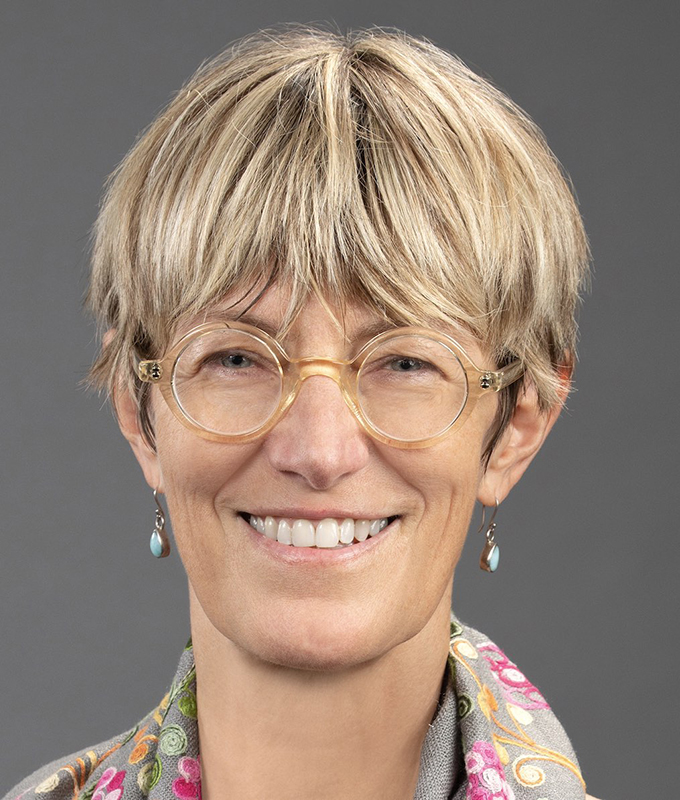 Allison StangerAllison Stanger is Visiting Professor of Technology and Human Values, Bard College; Co-Director and Principal Investigator (with Danielle Allen), GETTING-Plurality Research Network, Harvard University; Russell Leng ’60 Professor of International Politics and Economics at Middlebury College; 2021-23 Research Affiliate (co-lead, Responsible Hybrid Intelligence Initiative) at the Center for Advanced Study in the Behavioral Sciences, Stanford University; and an External Professor and Science Board member at the Santa Fe Institute. Stanger’s writing has appeared in The Atlantic, Foreign Affairs, Foreign Policy, Financial Times, International Herald Tribune, New York Times, USA Today, and the Washington Post. She has been called to testify before Congress on five occasions and served as a peer reviewer for the National Academies 2022 report, “Fostering Responsible Computing.” Stanger received her Ph.D. in Political Science from Harvard University. She majored in mathematics as an undergraduate.
Allison StangerAllison Stanger is Visiting Professor of Technology and Human Values, Bard College; Co-Director and Principal Investigator (with Danielle Allen), GETTING-Plurality Research Network, Harvard University; Russell Leng ’60 Professor of International Politics and Economics at Middlebury College; 2021-23 Research Affiliate (co-lead, Responsible Hybrid Intelligence Initiative) at the Center for Advanced Study in the Behavioral Sciences, Stanford University; and an External Professor and Science Board member at the Santa Fe Institute. Stanger’s writing has appeared in The Atlantic, Foreign Affairs, Foreign Policy, Financial Times, International Herald Tribune, New York Times, USA Today, and the Washington Post. She has been called to testify before Congress on five occasions and served as a peer reviewer for the National Academies 2022 report, “Fostering Responsible Computing.” Stanger received her Ph.D. in Political Science from Harvard University. She majored in mathematics as an undergraduate. -
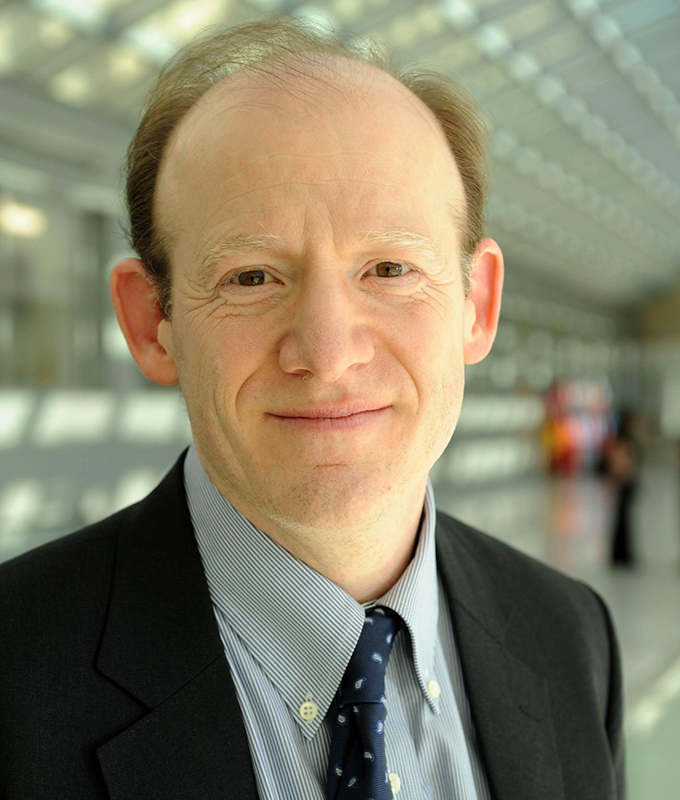 Andrew W. WyckoffAndrew W. Wyckoff is the Director of the OECD’s Directorate for Science, Technology and Innovation (STI) where he oversees OECD’s work on innovation, business dynamics, science and technology, information and communication technology policy as well as the statistical work associated with each of these areas.
Andrew W. WyckoffAndrew W. Wyckoff is the Director of the OECD’s Directorate for Science, Technology and Innovation (STI) where he oversees OECD’s work on innovation, business dynamics, science and technology, information and communication technology policy as well as the statistical work associated with each of these areas.
His experience prior to the OECD includes being a program manager of the Information, Telecommunications and Commerce program of the US Congressional Office of Technology Assessment (OTA), an economist at the US National Science Foundation (NSF) and a programmer at The Brookings Institution.
He has served as an expert on various advisory groups and panels which include joining the Global Board of Trustees of Digital Future Society (DFS), being a Commissioner on the Lancet/FT Governing Health Futures 2030 Commission, the International Advisory Board of the Research Council of Norway and Head of OECD’s Delegation at the G20 and G7 meetings on ICT and Digital Economy.
Mr. Wyckoff is a citizen of the United States, holds a BA in Economics from the University of Vermont, and a Master of Public Policy from the JFK School of Government, Harvard University. -
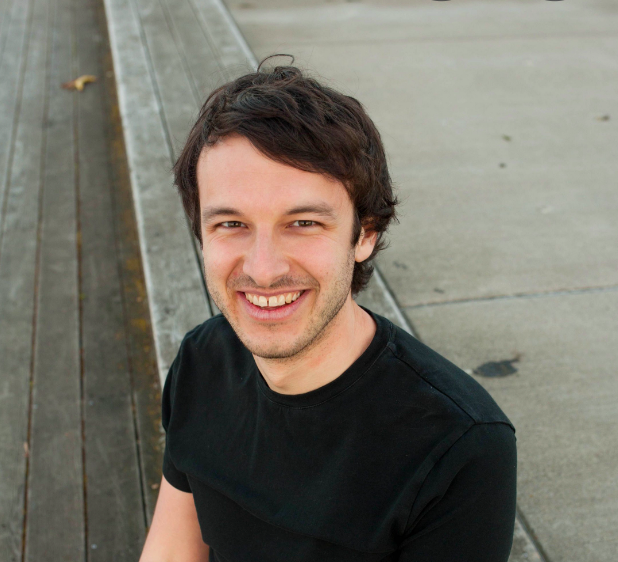 Colin MegillColin Megill is cofounder of pol.is and President of The Computational Democracy Project. Polis is an online tool used to gather open ended feedback from large groups of people. It is well suited to gathering organic, authentic feedback while retaining minority opinions. Polis has been widely covered in the popular press — including articles from The New York Times, The Guardian, The Economist and MIT Tech Review — as well as in documentaries from the BBC and books from Penguin.
Colin MegillColin Megill is cofounder of pol.is and President of The Computational Democracy Project. Polis is an online tool used to gather open ended feedback from large groups of people. It is well suited to gathering organic, authentic feedback while retaining minority opinions. Polis has been widely covered in the popular press — including articles from The New York Times, The Guardian, The Economist and MIT Tech Review — as well as in documentaries from the BBC and books from Penguin. -
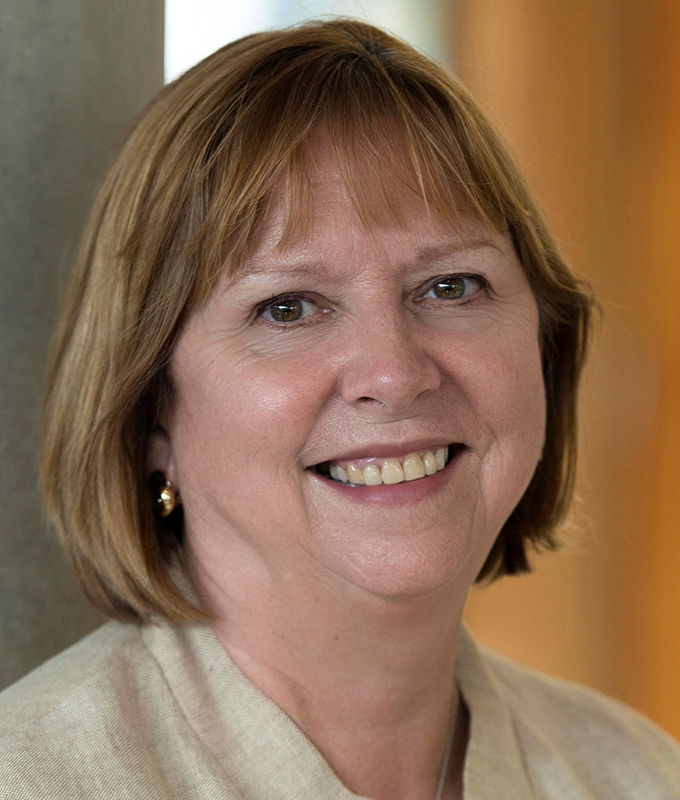 Dame Wendy HallDame Wendy Hall, DBE, FRS, FREng is Regius Professor of Computer Science, Associate Vice President (International Engagement) and is an Executive
Dame Wendy HallDame Wendy Hall, DBE, FRS, FREng is Regius Professor of Computer Science, Associate Vice President (International Engagement) and is an Executive
Director of the Web Science Institute at the University of Southampton. She became a Dame Commander of the British Empire in the 2009 UK New Year's
Honours list and is a Fellow of the Royal Society. Dame Wendy was co-Chair of the UK government’s AI Review, which was published in October 2017, and is
the first Skills Champion for AI in the UK. In May 2020, she was appointed as Chair of the Ada Lovelace Institute and joined the BT Technology Advisory
board in January 2021.Dame Wendy Hall
-
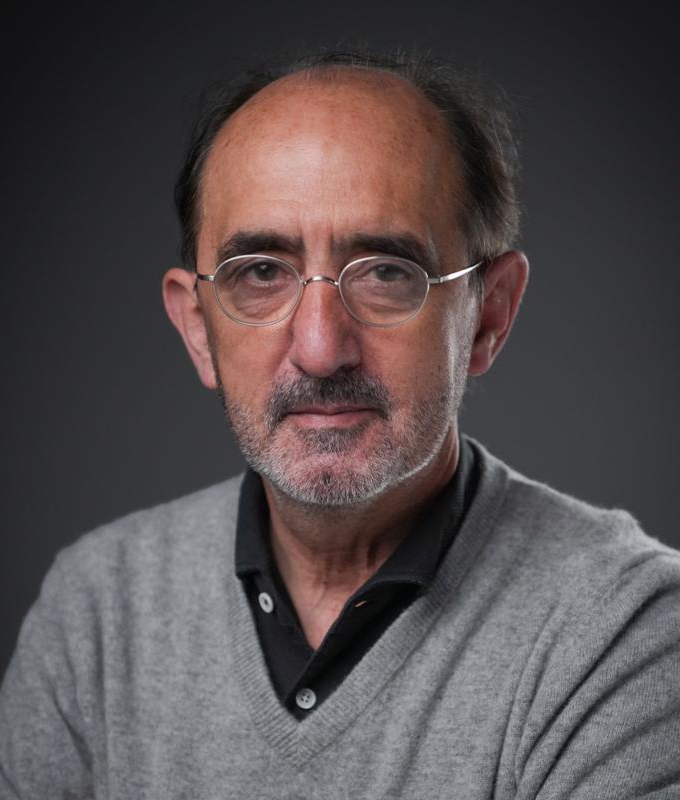 Daniel InnerarityHe is Professor of Political and Social Philosophy at the University of the Basque Country and the Ikerbasque Foundation for Science, Spain. He is also director of the Instituto de Gobernanza Democrática.
Daniel InnerarityHe is Professor of Political and Social Philosophy at the University of the Basque Country and the Ikerbasque Foundation for Science, Spain. He is also director of the Instituto de Gobernanza Democrática.
Previously, he was a Robert Schuman Visiting Professor at the European University Institute (EUI), Fellow of the Alexander von Humboldt Foundation at the University of Munich and visiting professor at the University of Paris 1-Sorbonne. He also held a professorship at Georgetown University and was visiting fellow of the Max Planck Institut for International and Public Law at Heidelberg.
He has been awarded the Miguel de Unamuno Essay Prize, the 2003 National Literature Prize in the Essay category, the Espasa Essay Prize and the Euskadi Essay Prize. He has also received the Prize for Humanities, Culture, Arts and Social Sciences from the Basque Studies Society/Eusko Ikaskuntza in 2008 and the Príncipe de Viana Culture Prize 2013.
Misha Glenny is the Rector of the Institute for Human Sciences (IWM) in Vienna, one of Austria’s leading advanced research institute. An award-winning journalist and author, Misha is a sought-after keynote speaker on the geo-politics of cyber security and organised crime. His best-selling non-fiction book, McMafia - about the globalisation of organised crime – was adapted into a major TV drama series on BBC1 and AMC. Misha is also the author of an acclaimed one-volume history of the modern Balkans. An alumnus of the Woodrow Wilson Center and the Berggruen Institute, he has taught as a visiting professor at the LSE, Columbia University and University College London. -
 Dylan SparksDylan Sparks is a Policy Advisor at Reset, a philanthropic initiative, where he works with civil society organisations and policy makers to tackle digital threats to democracy through legislation.
Dylan SparksDylan Sparks is a Policy Advisor at Reset, a philanthropic initiative, where he works with civil society organisations and policy makers to tackle digital threats to democracy through legislation. -
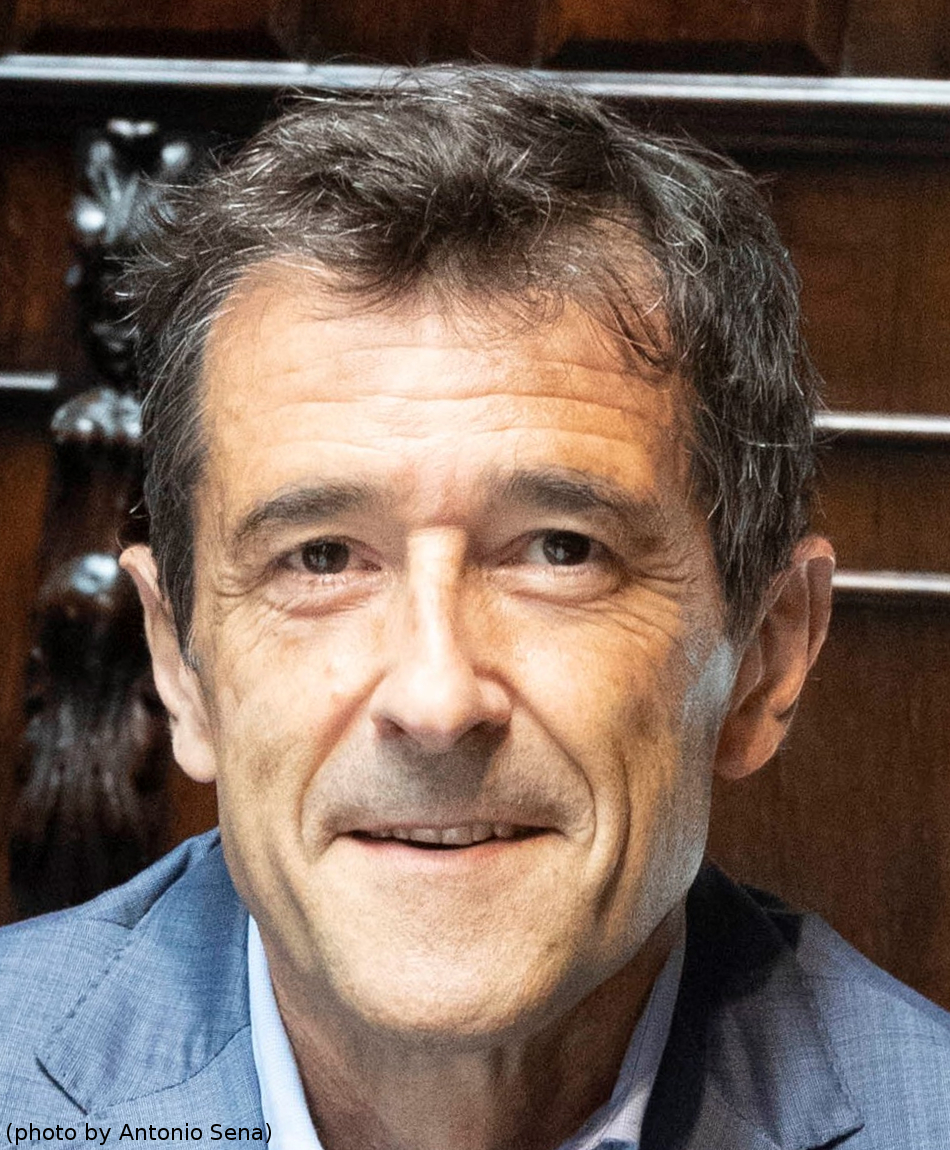 Enrico NardelliEnrico Nardelli is full professor of Informatics at University of Rome "Tor Vergata" and the President of Informatics Europe, the association representing Informatics university departments and research labs in Europe (https://informatics-europe.org). He is also member of the ACM Europe Council.
Enrico NardelliEnrico Nardelli is full professor of Informatics at University of Rome "Tor Vergata" and the President of Informatics Europe, the association representing Informatics university departments and research labs in Europe (https://informatics-europe.org). He is also member of the ACM Europe Council.
Since 2014 he coordinates "Programma il Futuro" (https://programmailfuturo.it), a project run by CINI (National Interuniversity Consortium in Informatics), in accordance with the Italian Ministry of Education, to introduce in Italian schools the basic concepts of Informatics as a scientific discipline. The project is present in 80% of the Italian schools and is followed by 3 million students.
He is the director of the national laboratory "Informatics and School" of CINI (where he has served as Management Board member from 2013 to 2021) and member of the Steering Committee of the "Informatics for All" coalition (https://informaticsforall.org), advocating the introduction of Informatics as component of fundamental education in all schools in Europe.
His current research activity is Informatics Education and interdisciplinary study of Informatics systems and their social impact, within the Link&Think Research Lab (https://link-and-think.blogspot.com) and the CINI National laboratory "Informatics and Society". Previously he did research in various fields of Informatics, from algorithms to databases, from geographical information systems to man-machine interaction and cooperative information systems.
He also carries out dissemination activity towards the general public regarding Informatics education and the role of Informatics in the digital society.
His website is https://www.mat.uniroma2.it/~nardelli/ -
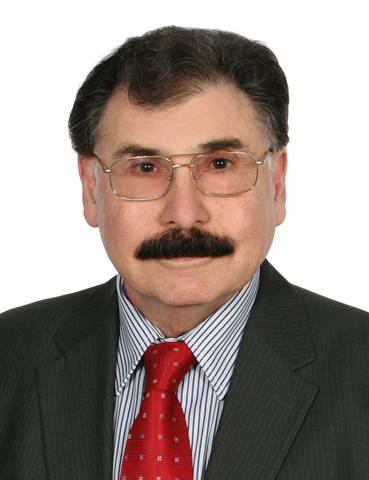 George MetakidesBorn in Thessaloniki, Greece, George Metakides received his Ph.D. in Mathematical Logic from Cornell University in 1971. He pursued an academic career at
George MetakidesBorn in Thessaloniki, Greece, George Metakides received his Ph.D. in Mathematical Logic from Cornell University in 1971. He pursued an academic career at
MIT, Cornell and Rochester University until 1978, when he returned to Greece after being elected to the Chair of Logic at the University of Patras. Since1984 he has held senior positions with responsibility for Research and Development policy, funding and international co-operation in European institutions.
He established and headed the department for Basic Research and International Scientific Relations in Information Technologies at the European Commission from 1988 to 1993. He was the Director of the ESPRIT (European Strategic Program for Information Technologies), from 1993 until its completion in 1998, followed by the Information Society Technologies (IST) Program (1998-2002). In 2002 he returned to his professorship at Patras until his retirement in 2012. He has contributed to the establishment of international institutions (including the launch of the World Wide Web consortium in 1993), has received a number of awards and honorary degrees and is a corresponding member of several National Academies.
He will be visiting professor at TU Wien and IWM senior fellow in the Fall of 2023, he is co-founder and Honorary President of the Digital Enlightenment Forum, and Advisor to several international organizations. He is involved in the analysis of the economic, political and social impact of
digitization related regulatory issues and the promotion of international cooperation towards a digital ecosystem respecting shared human values.
He holds honorary doctorates from the University of Newcastle-upon-Tyne, the Technical University of Bucharest and the University of Thessaloniki and is an honorary professor of the University of Moscow. He is a foreign member of the Russian Academy of Natural Sciences and an honorary member of the Romanian Academy of Science. He has received the Medal of Honor of the Bulgarian Academy of Science, the Polish Information Society Recognition Award, for his
efforts to build co-operation between IT professionals in the EU, the Nokia Award and theTelecom Europe Prize for his contribution to the development and dissemination of new information and communication technologies in Europe.George Metakides
-
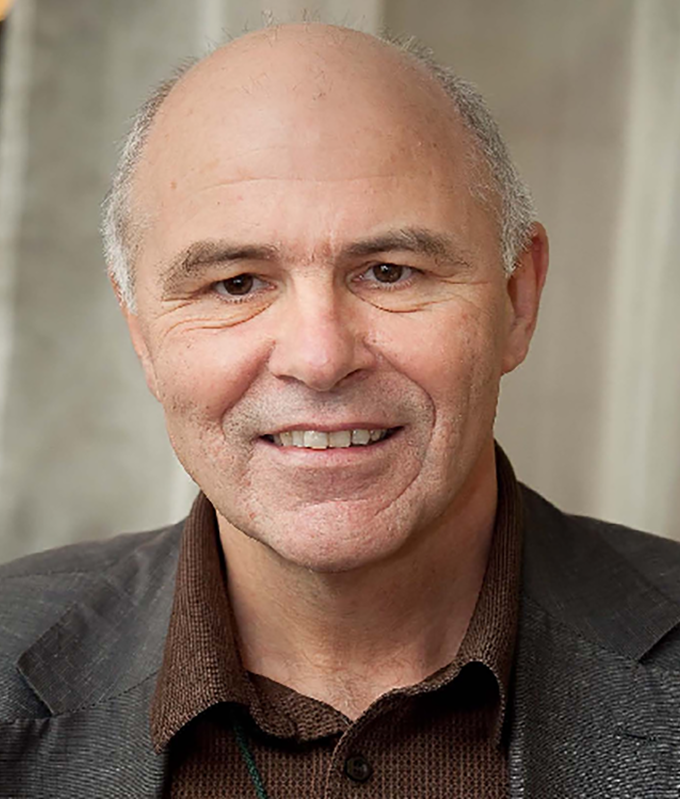 Hannes WerthnerHannes Werthner is a retired Computer Science Professor at the Faculty of Informatics, TU Wien. Prior to joining TU Wien, he had professorships at Austrian and international Universities. His research is in several fields such as Decision Support Systems, E-Commerce and E-Tourism, Recommender Systems. Besides research and teaching he served as the Dean of the Faculty and started initiatives such as the Vienna PhD School of Informatics and the i2c / Informatics Innovation Center. In the area of E-Tourism, the International Federation for IT and Tourism (IFITT) grants the “Hannes Werthner Tourism and Technology Lifetime Achievement Award” to outstanding personalities in the field. He is a key person of the Digital Humanism Initiative – see also “Perspectives on Digital Humanism”
Hannes WerthnerHannes Werthner is a retired Computer Science Professor at the Faculty of Informatics, TU Wien. Prior to joining TU Wien, he had professorships at Austrian and international Universities. His research is in several fields such as Decision Support Systems, E-Commerce and E-Tourism, Recommender Systems. Besides research and teaching he served as the Dean of the Faculty and started initiatives such as the Vienna PhD School of Informatics and the i2c / Informatics Innovation Center. In the area of E-Tourism, the International Federation for IT and Tourism (IFITT) grants the “Hannes Werthner Tourism and Technology Lifetime Achievement Award” to outstanding personalities in the field. He is a key person of the Digital Humanism Initiative – see also “Perspectives on Digital Humanism” -
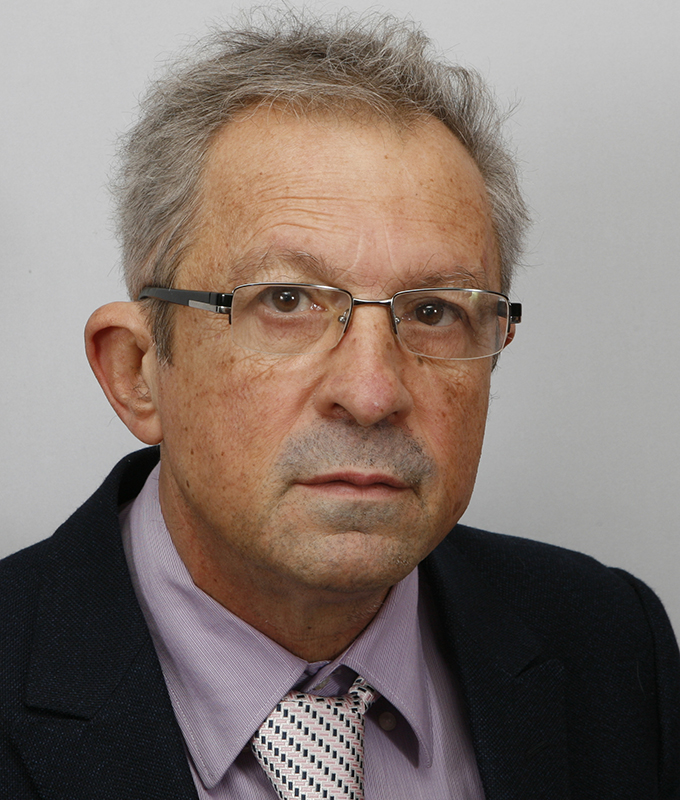 Joseph SifakisProfessor Joseph Sifakis is Emeritus Research Director at Verimag. He has been a full professor at Ecole Polytechnique Fédérale de Lausanne (EPFL) for the period 2011-2016. He is the founder of the Verimag laboratory in Grenoble, a leading laboratory in the area of safety critical systems that he directed for 13 years.
Joseph SifakisProfessor Joseph Sifakis is Emeritus Research Director at Verimag. He has been a full professor at Ecole Polytechnique Fédérale de Lausanne (EPFL) for the period 2011-2016. He is the founder of the Verimag laboratory in Grenoble, a leading laboratory in the area of safety critical systems that he directed for 13 years.
Joseph Sifakis has made significant and internationally recognized contributions to the design of trustworthy systems in many application areas, including avionics and space systems, telecommunications, and production systems. His current research focuses on autonomous systems, in particular self-driving cars and autonomous telecommunication systems. In 2007, he received the Turing Award, recognized as the “highest distinction in computer science” for his contribution to the theory and application of model checking, the most widely used system verification technique.
Joseph Sifakis is a member of six academies and a frequent speaker at international scientific, technical and public forums. -
 Marc RotenbergMarc Rotenberg is President and Founder of the Center for AI and Digital Policy. He is a leading expert in data protection, open government, and AI policy. He has served on many international advisory panels for digital policy, including the OECD AI Group of Experts. Marc helped draft the Universal Guidelines for AI, a widely endorsed human rights framework for the regulation of Artificial Intelligence. Marc is the author of several textbooks including the 2020 AI Policy Sourcebook and Privacy and Society (West Academic 2016). He teaches privacy law and the GDPR at Georgetown Law. Marc has spoken frequently before the US Congress, the European Parliament, the OECD, UNESCO, judicial conferences, and international organizations. Marc has directed international comparative law studies on Privacy and Human Rights, Cryptography and Liberty, and Artificial Intelligence and Democratic Values. Marc is a graduate of Harvard College, Stanford Law School, and Georgetown Law.
Marc RotenbergMarc Rotenberg is President and Founder of the Center for AI and Digital Policy. He is a leading expert in data protection, open government, and AI policy. He has served on many international advisory panels for digital policy, including the OECD AI Group of Experts. Marc helped draft the Universal Guidelines for AI, a widely endorsed human rights framework for the regulation of Artificial Intelligence. Marc is the author of several textbooks including the 2020 AI Policy Sourcebook and Privacy and Society (West Academic 2016). He teaches privacy law and the GDPR at Georgetown Law. Marc has spoken frequently before the US Congress, the European Parliament, the OECD, UNESCO, judicial conferences, and international organizations. Marc has directed international comparative law studies on Privacy and Human Rights, Cryptography and Liberty, and Artificial Intelligence and Democratic Values. Marc is a graduate of Harvard College, Stanford Law School, and Georgetown Law. -
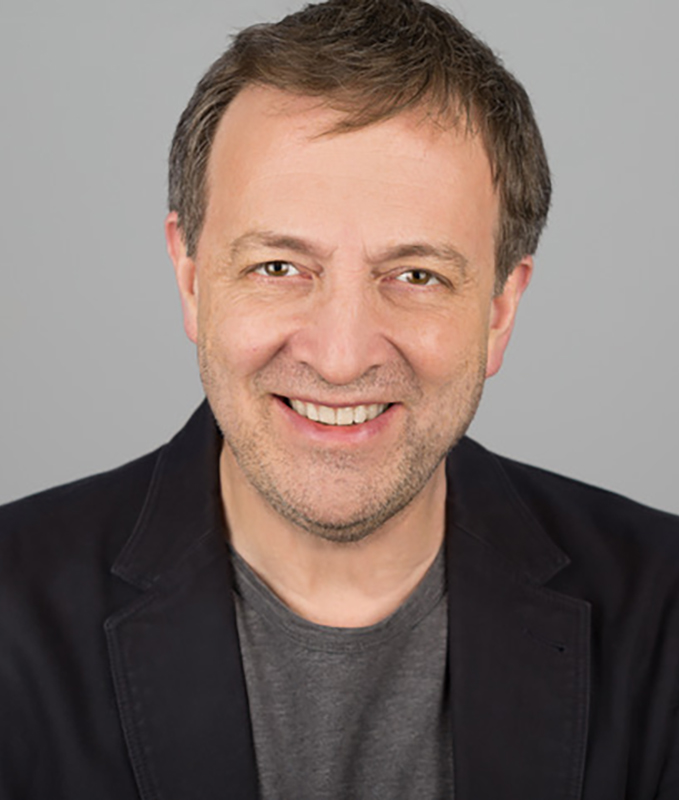 Misha GlennyMisha Glenny is the Rector of the Institute for Human Sciences (IWM) in Vienna, one of Austria’s leading advanced research institute. An award-winning journalist and author, Misha is a sought-after keynote speaker on the geo-politics of cyber security and organised crime. His best-selling non-fiction book, McMafia - about the globalisation of organised crime – was adapted into a major TV drama series on BBC1 and AMC. Misha is also the author of an acclaimed one-volume history of the modern Balkans. An alumnus of the Woodrow Wilson Center and the Berggruen Institute, he has taught as a visiting professor at the LSE, Columbia University and University College London.
Misha GlennyMisha Glenny is the Rector of the Institute for Human Sciences (IWM) in Vienna, one of Austria’s leading advanced research institute. An award-winning journalist and author, Misha is a sought-after keynote speaker on the geo-politics of cyber security and organised crime. His best-selling non-fiction book, McMafia - about the globalisation of organised crime – was adapted into a major TV drama series on BBC1 and AMC. Misha is also the author of an acclaimed one-volume history of the modern Balkans. An alumnus of the Woodrow Wilson Center and the Berggruen Institute, he has taught as a visiting professor at the LSE, Columbia University and University College London. -
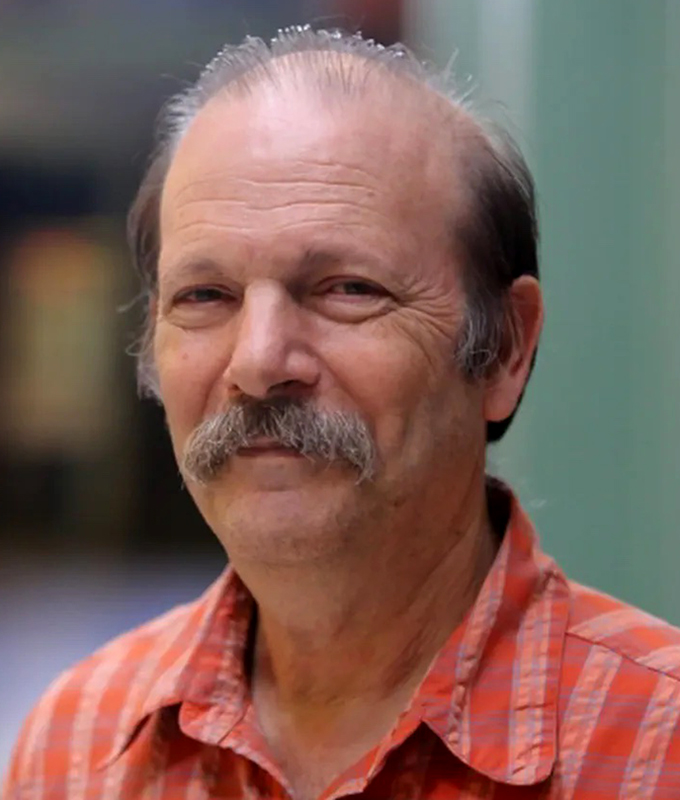 Moshe VardiWith over 50,000 citations, Moshe Vardi is one of the most cited computer scientists worldwide. Since 1993, Moshe Vardi has been a professor at Rice University (Texas, USA). He is a leading researcher in the field of logic applications in computer science and plays a leading role in the discussion of the role of computer science in society. The lectures and articles by Moshe Vardi on the implications of robotics and artificial intelligence (up to the question of whether intelligent robots are stealing your job) have strongly influenced public discourse. Until 2017, he served as Editor‐in‐Chief of Communications of the ACM (CACM). Moshe Y. Vardi studied Physics and Computer Science at BarIlan University and at Weizmann Institute. He received his doctorate from the Hebrew University in Jerusalem (Israel). He spent several years in various positions at top institutions such as the Hebrew University, Stanford University and the IBM Research Center in San Jose (USA).
Moshe VardiWith over 50,000 citations, Moshe Vardi is one of the most cited computer scientists worldwide. Since 1993, Moshe Vardi has been a professor at Rice University (Texas, USA). He is a leading researcher in the field of logic applications in computer science and plays a leading role in the discussion of the role of computer science in society. The lectures and articles by Moshe Vardi on the implications of robotics and artificial intelligence (up to the question of whether intelligent robots are stealing your job) have strongly influenced public discourse. Until 2017, he served as Editor‐in‐Chief of Communications of the ACM (CACM). Moshe Y. Vardi studied Physics and Computer Science at BarIlan University and at Weizmann Institute. He received his doctorate from the Hebrew University in Jerusalem (Israel). He spent several years in various positions at top institutions such as the Hebrew University, Stanford University and the IBM Research Center in San Jose (USA). -
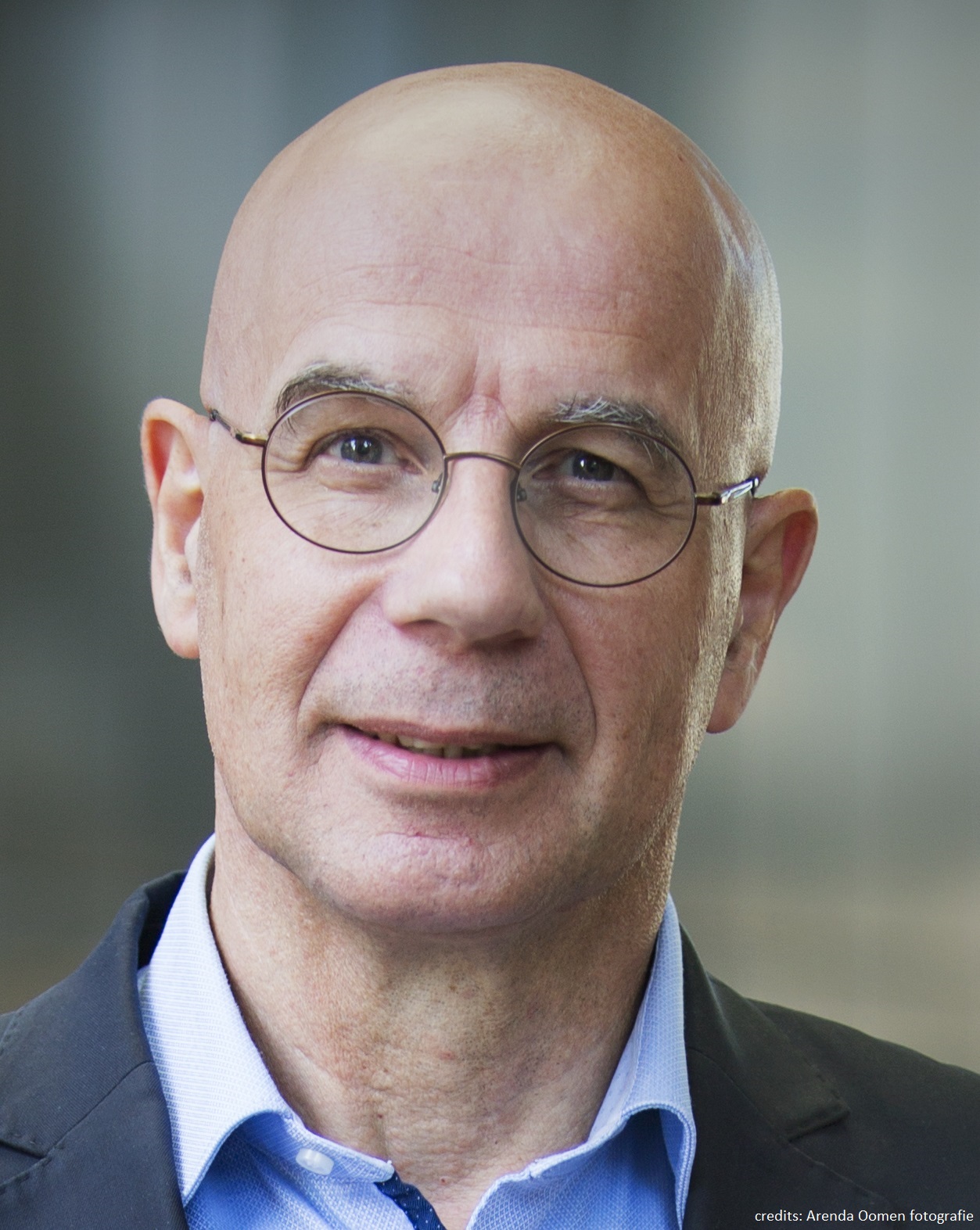 Paul TimmersProf. Dr Paul Timmers is Research Associate at the University of Oxford, Oxford Internet Institute, professor at KU Leuven and European University Cyprus and the University of Rijeka (visiting), senior advisor EPC Brussels, President of the Supervisory Board Estonian eGovernance Academy, member of the EU Cyber Direct Advisory Board, and CEO of iivii.
Paul TimmersProf. Dr Paul Timmers is Research Associate at the University of Oxford, Oxford Internet Institute, professor at KU Leuven and European University Cyprus and the University of Rijeka (visiting), senior advisor EPC Brussels, President of the Supervisory Board Estonian eGovernance Academy, member of the EU Cyber Direct Advisory Board, and CEO of iivii.
Previously, he was Director at the European Commission/DG CONNECT where has held responsibility for legislation and funding programmes for cybersecurity, e-ID, digital privacy, digital health, smart cities, and e-government. He was also a cabinet member of European Commissioner Liikanen. He worked as manager of a software department in a large ICT company and co-founded an ICT start-up. He holds a physics PhD from Radboud University (Nijmegen, NL), MBA from Warwick University (UK), EU fellowship at UNC Chapel Hill (US), and a cybersecurity qualification from Harvard.
His main interests are digital policy, geopolitics, and Europe. He frequently publishes and speaks on digital developments, technology and sovereignty, cybersecurity, industrial policy, and sectoral policies such as digital health and is regularly advising governments and think tanks. -
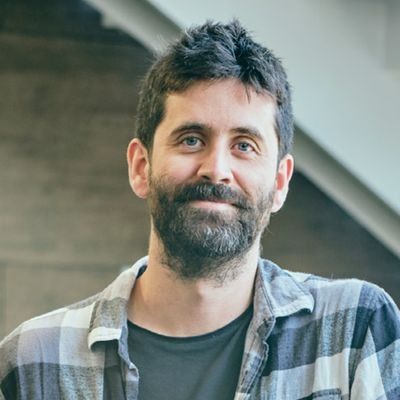 Pablo AragonPablo Aragón is a research scientist at the Wikimedia Foundation, where he focuses on knowledge integrity and resilience to disinformation in Wikipedia and its sister projects. He is interested in computational social science and social computing through interdisciplinary and participatory approaches to enhance collaboration and deliberation in online platforms, including civic technologies and social media. His research has been published in top-tier conferences and journals, and featured in international media like MIT Technology Review, The Atlantic, BBC News, The Guardian, VICE Magazine and Business Insider. He is also an adjunct professor at the Department of Information and Communication Technologies at Universitat Pompeu Fabra. Pablo actively contributes to technopolitical projects and served as a foundational board member of Decidim, the free open source platform for participatory democracy.
Pablo AragonPablo Aragón is a research scientist at the Wikimedia Foundation, where he focuses on knowledge integrity and resilience to disinformation in Wikipedia and its sister projects. He is interested in computational social science and social computing through interdisciplinary and participatory approaches to enhance collaboration and deliberation in online platforms, including civic technologies and social media. His research has been published in top-tier conferences and journals, and featured in international media like MIT Technology Review, The Atlantic, BBC News, The Guardian, VICE Magazine and Business Insider. He is also an adjunct professor at the Department of Information and Communication Technologies at Universitat Pompeu Fabra. Pablo actively contributes to technopolitical projects and served as a foundational board member of Decidim, the free open source platform for participatory democracy.
Pablo was a doctoral researcher of the Artificial Intelligence and Machine Learning research group at Universitat Pompeu Fabra (2015-2019) and held a visiting appointment at the Oxford Internet Institute – University of Oxford (2018). He worked as a research scientist at Eurecat (2015-2021) and as a research engineer at Barcelona Media (2011-2015). These positions led him to contribute to multiple EU-funded research projects like DECODE, implementing a technopolitical framework around data commons and data sovereignty, or D-CENT, developing distributed and privacy-aware free open source tools for direct democracy. Pablo coordinated the Data Analysis for Citizen Participation project at Medialab Prado, and co-founded the Democratic Innovation Lab of Barcelona City Council and the DatAnalysis15M research network. Prior to his research career, he worked as a data engineer at a social media monitoring startup.
-
 Roger BerkowitzFounder and Academic Director of the Hannah Arendt Center and Professor of Politics, Philosophy, and Human Rights, Roger Berkowitz writes and speaks about how justice is made present in the world. He is author of Perils of Invention: Lying, Technology, and the Human Condition (2022), The Gift of Science: Leibniz and the Modern Legal Tradition, co-editor of Artifacts of Thinking: Reading Hannah Arendt's Denktagebuch (2017), Thinking in Dark Times: Hannah Arendt on Ethics and Politics (2010), The Intellectual Origins of the Global Financial Crisis (2012), and editor of the annual journal HA: The Journal of the Hannah Arendt Center. His essay "Reconciling Oneself to the Impossibility of Reconciliation: Judgment and Worldliness in Hannah Arendt's Politics," has helped bring attention to the centrality of reconciliation in Hannah Arendt's work. The Arendt Center organizes an annual conference every October. Professor Berkowitz edits the Hannah Arendt Center's weekly newsletter, Amor Mundi. His writing has appeared in The New York Times, Bookforum, The Chronicle of Higher Education, The Paris Review Online, Democracy: A Journal of Ideas, The American Interest, and many other publications. Berkowitz is the 2019 recipient of the Hannah Arendt Award for Political Thought given by the Heinrich Böll Stiftung in Bremen, Germany.
Roger BerkowitzFounder and Academic Director of the Hannah Arendt Center and Professor of Politics, Philosophy, and Human Rights, Roger Berkowitz writes and speaks about how justice is made present in the world. He is author of Perils of Invention: Lying, Technology, and the Human Condition (2022), The Gift of Science: Leibniz and the Modern Legal Tradition, co-editor of Artifacts of Thinking: Reading Hannah Arendt's Denktagebuch (2017), Thinking in Dark Times: Hannah Arendt on Ethics and Politics (2010), The Intellectual Origins of the Global Financial Crisis (2012), and editor of the annual journal HA: The Journal of the Hannah Arendt Center. His essay "Reconciling Oneself to the Impossibility of Reconciliation: Judgment and Worldliness in Hannah Arendt's Politics," has helped bring attention to the centrality of reconciliation in Hannah Arendt's work. The Arendt Center organizes an annual conference every October. Professor Berkowitz edits the Hannah Arendt Center's weekly newsletter, Amor Mundi. His writing has appeared in The New York Times, Bookforum, The Chronicle of Higher Education, The Paris Review Online, Democracy: A Journal of Ideas, The American Interest, and many other publications. Berkowitz is the 2019 recipient of the Hannah Arendt Award for Political Thought given by the Heinrich Böll Stiftung in Bremen, Germany. -
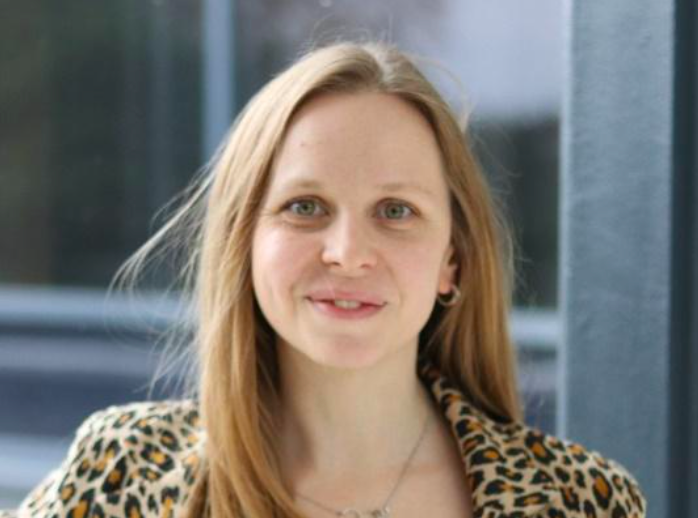 Tatjana EvasTatjana Evas is a Legal and Policy Officer in the European Commission (DG CNECT) in the unit responsible for AI Policy Development and Coordination. She is one of the team members who drafted the Commission proposal for the AI Act and 2021 review of the Coordinated Plan on AI. She is responsible for the ongoing work on the development of standards to support the requirements of the AI Act and conformity assessment procedure as well as relationship of AI Act proposal with the sectoral legislation, including on liability. Tatjana also follow international activities related to AI, in particular on G7 and cooperation with the OECD where she is a member of the OECD Working
Tatjana EvasTatjana Evas is a Legal and Policy Officer in the European Commission (DG CNECT) in the unit responsible for AI Policy Development and Coordination. She is one of the team members who drafted the Commission proposal for the AI Act and 2021 review of the Coordinated Plan on AI. She is responsible for the ongoing work on the development of standards to support the requirements of the AI Act and conformity assessment procedure as well as relationship of AI Act proposal with the sectoral legislation, including on liability. Tatjana also follow international activities related to AI, in particular on G7 and cooperation with the OECD where she is a member of the OECD Working
Party on Artificial Intelligence Governance (AIGO). Tatjana holds a PhD in law from University of Bremen (Germany). Before joining European civil service in 2015, Tatjana had extensive professional experience in academia and in non-governmental sector. -
Viktoria H.S.E. RobertsonViktoria H.S.E. Robertson is Professor of Competition Law and Digitalization at the Vienna University of Economics and Business and Professor of International Antitrust Law at the University of Graz. She is also Director of the independent research platform The Competition Law Hub. Amongst others, Vicky has been a visiting academic with Oxford University’s Centre for Competition Law and Policy, the Max Planck Institute for Comparative and International Private Law, Stanford University and the FGV-Rio Law School. Her current research particularly focuses on the application of competition law in digital market environments. She has recently written on Big Tech, Antitrust and Democracy and is the author of Competition Law’s Innovation Factor: The Relevant Market in Dynamic Contexts in the EU and the US (Hart Publishing 2020).
-
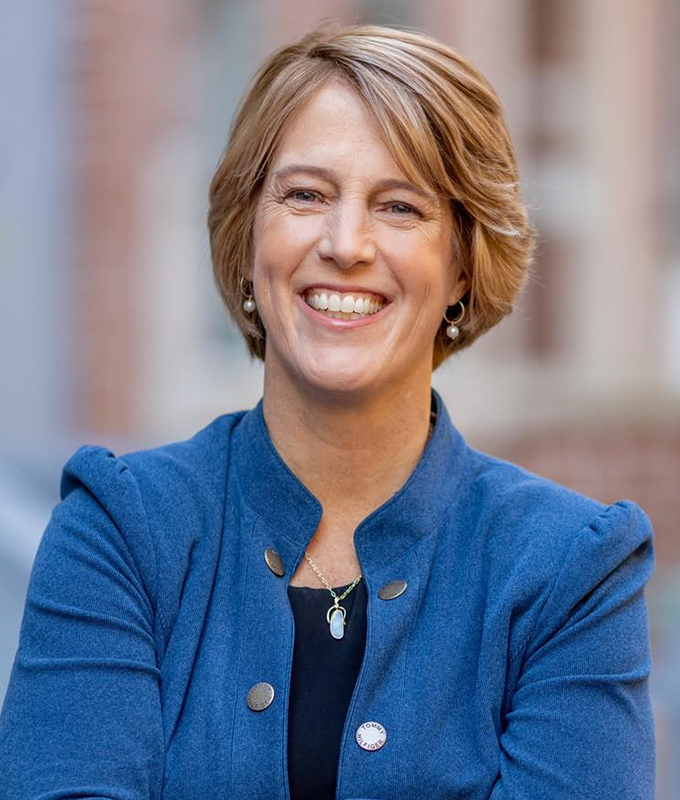 Zephyr TeachoutZephyr Teachout is a law Professor at Fordham Law School, where she teaches antitrust, corporate law, and the law of democracy. She is the author of two books (Corruption in America (2014) and Break 'em Up: Recovering our Freedom from Big Ag, Big Tech, and Big Money (2020), and dozens of law review articles on corruption law, antitrust, and pricing. Her writing has appeared in the the New York Times, Washington Post, The American Prospect, The Nation, The New York Review of Books, Foreign Policy, and The New Republic. She has played a key role in building the American antitrust movement from 2014-2021, serving as the first Board Chair for Open Markets Institute, an advisor to the American Economic Liberties Project, and drafting federal and state legislative proposals. She has held visiting professorial appointments at Harvard University’s Kennedy School of Government and Duke University School of Law and will be visiting at Yale Law School in the Fall 2023. In 2022 and 2023 she served as Senior Counsel for Economic Justice for the New York Attorney General.
Zephyr TeachoutZephyr Teachout is a law Professor at Fordham Law School, where she teaches antitrust, corporate law, and the law of democracy. She is the author of two books (Corruption in America (2014) and Break 'em Up: Recovering our Freedom from Big Ag, Big Tech, and Big Money (2020), and dozens of law review articles on corruption law, antitrust, and pricing. Her writing has appeared in the the New York Times, Washington Post, The American Prospect, The Nation, The New York Review of Books, Foreign Policy, and The New Republic. She has played a key role in building the American antitrust movement from 2014-2021, serving as the first Board Chair for Open Markets Institute, an advisor to the American Economic Liberties Project, and drafting federal and state legislative proposals. She has held visiting professorial appointments at Harvard University’s Kennedy School of Government and Duke University School of Law and will be visiting at Yale Law School in the Fall 2023. In 2022 and 2023 she served as Senior Counsel for Economic Justice for the New York Attorney General.


















